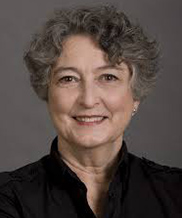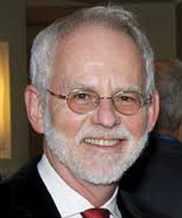Welcome & Introduction to the Workforce & Learning Pathways In A Period Of Dynamic Change Conference
 Martha Russell is Executive Director of mediaX at Stanford University and Senior Research Scholar with the Human Sciences Technology Advanced Research Institute at Stanford. She leads business alliances and interdisciplinary research for mediaX at Stanford University. With people and technology as the intersecting vectors. With a focus on the power of shared vision, Russell has developed planning/evaluation systems and consulted regionally and internationally on technology innovation for regional development. In her opening remarks, Martha addresses…
Martha Russell is Executive Director of mediaX at Stanford University and Senior Research Scholar with the Human Sciences Technology Advanced Research Institute at Stanford. She leads business alliances and interdisciplinary research for mediaX at Stanford University. With people and technology as the intersecting vectors. With a focus on the power of shared vision, Russell has developed planning/evaluation systems and consulted regionally and internationally on technology innovation for regional development. In her opening remarks, Martha addresses…
1. mediaX as a member-supported organization; and thanks our members for the support for this Conference.
2. Learning and career pathways are changing.
3. We need multi-disciplinary collaboration between business and academia to design content and programs for learning, education and training in this period of dynamic change.
 Roy Pea is the David Jacks Professor of Education and the Learning Sciences at Stanford University, Co-Founder and Faculty Director of the H-STAR Institute, Director of the PhD Program in Learning Sciences and Technology Design, and Professor, Computer Science (Courtesy). Since 1981, Dr. Pea has been exploring how information technologies can support and advance the scientific understanding and practices of learning and teaching, with particular focus on topics in science, mathematics, and technology education and their associated symbolic and communicative interchanges that are integral to learning. In his remarks, Roy examines…
Roy Pea is the David Jacks Professor of Education and the Learning Sciences at Stanford University, Co-Founder and Faculty Director of the H-STAR Institute, Director of the PhD Program in Learning Sciences and Technology Design, and Professor, Computer Science (Courtesy). Since 1981, Dr. Pea has been exploring how information technologies can support and advance the scientific understanding and practices of learning and teaching, with particular focus on topics in science, mathematics, and technology education and their associated symbolic and communicative interchanges that are integral to learning. In his remarks, Roy examines…
1. In the algorithmization of human physical and cognitive labors, software is eating jobs and entire industries of workers.
2. Recent applications of AI, Machine Learning, and Data Sciences have brought prospects of self-driving cars, pervasive computer vision, facial recognition, and robust speech recognition as a naturalistic means humans interacting with computational devices, as well as machines learning about the natural and social worlds.
3. The future success of the middle class rests on the nation’s ability to sharply increase the fraction of American children with the foundational skills needed to develop job-relevant knowledge and to learn efficiently over a lifetime.